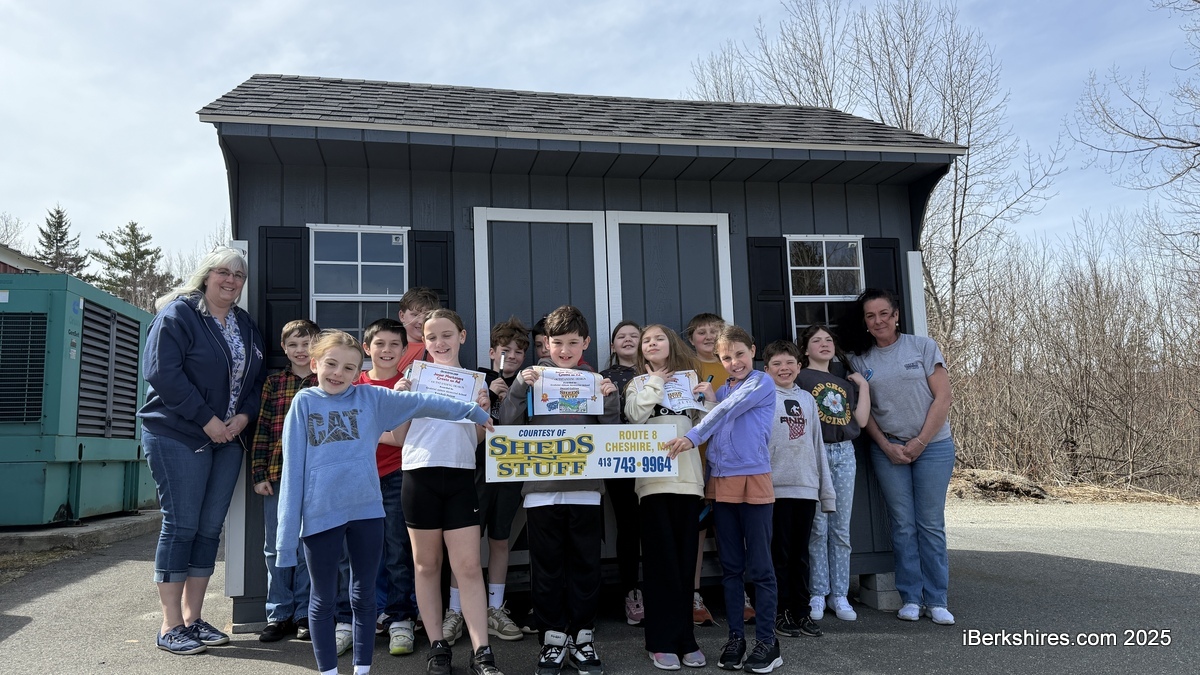Let History be the Judge, Urges Mayor Gerald Doyle Jr., as He Prepares to Exit
PITTSFIELD, Mass. — As Gerald Doyle Jr. prepares to leave office in a few days, he realizes a cloud hangs over his administration.
The public and the media, quick to heap praise and then quicker to forget, seem focused only on the city's fiscal problems, hints of scandal and controversy at City Hall. But it wasn't always like this. And, Doyle believes, time will be kind to his administration when the dust has settled.
"I'd like to thank the citizens of Pittsfield for the faith that they showed in my administration," he said Thursday morning on the Larry Kratka radio program, broadcast on WUPE. "[Serving as mayor of Pittsfield] will truly be a fine, fine memory for me. It will not be a negative memory."
Doyle, who has publicly lambasted critics in recent weeks, was retrospective during the program. Even when prodded by Kratka, Doyle chose not to lash out.
"It's happy New Year," he said, smiling. "I like everybody today."
The program featured several audio clips from Doyle's early days as mayor — offering a stark contrast in tone from more recent soundbites.
Stands by his record
Doyle, who was first elected in 1997, pointed to several accomplishments, which he believes will boost the city's fortunes for years to come. As the biggest achievement, he cited the signing of the "consent decree" PCB cleanup agreement with General Electric.
The deal outlines remediation standards for parts of the Housatonic River and contaminated property, provides $10 million in cash payments to the city over 10 years and cedes much of the former GE industrial site to the city for redevelopment, under the direction of the Pittsfield Economic Development Authority.
"History will prove that we made a fabulous deal for the City of Pittsfield," Doyle said. "I think we have the best deal possible. I think the deal is tremendous."
Reaching the agreement consumed much of Doyle's time during his first term, as he and City Council President Tom Hickey traveled to Boston often for negotiations. Doyle takes pride in his own persistence, noting that Jack Welch once told him that he'd like to hire him at GE.
"I said, 'really? That's quite an honor.' And he said 'yeah, just so I could fire you'," Doyle recalled, laughing. "I guess I was driving him crazy."
'We left the door open to criticism'
Yet, the long stretches of time away from City Hall, when Doyle was working toward his greatest achievement, may have contributed to his biggest failure. The mayor concedes that he should have focused more attention on a burgeoning health insurance deficit — a deficit which led to the city's finances begin taken over by a state oversight board this past summer. While he did not comment on a scandal involving an insurance broker, Doyle said that he regrets not keeping a closer eye on the budget situation.
"The main thing that I would do differently is, obviously, I would have paid more attention to the health care issue," he said. "We left the door open to criticism. [The city is] a $99 million company that the mayor runs; sometimes you get good advice, sometimes you get bad advice."
When Kratka asked directly if he received "bad advice," the mayor replied: "Absolutely."
The mayor added that changes have been made in the health insurance program, including a switch in service providers to Blue Cross/Blue Shield, which is already showing signs of stabilizing the system. Doyle said he would have handled the departure of finance director David Kiley, who is blamed for many of the city's fiscal woes yet got a substantial severance package, in the same manner. City statutes and contractual obligations dictated the package, Doyle suggested.
Regrets lack of raises
The mayor expressed disappointment that Pittsfield "lacks the financial wherewithal to honor the city's contracts."
Most city employees, other than school department personnel, have not had raises in years — even groups that had negotiated deals.
"That's the other thing that bothers me," Doyle said, noting that the employees deserved raises. During the interview, Doyle touched on a number of additional achievements, including the razing of the decaying England Brothers building and construction of a new bank on the property and the revitalization of the Central Block building, which now houses offices, shops and restaurants.
Notably, Doyle hardly mentioned the issue that dominated much of his second term in office — the divisive effort to build a new downtown baseball stadium. Doyle advocated for the project, which, in the end, was rejected soundly by voters.
 Doyle, however, expressed confidence that the city's downtown would rebound. In fact, he said, the revitalization is underway.
Doyle, however, expressed confidence that the city's downtown would rebound. In fact, he said, the revitalization is underway.















